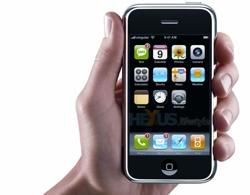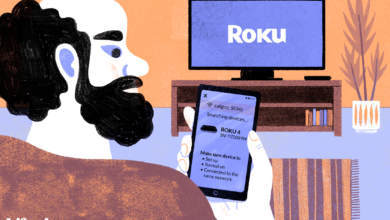
What’s a “truthful” price for a month’s really worth of wireless facts services? Like any pricing discussion, it really is a subjective make a difference, but quite a few sensible mobile phone buyers will probably protest new tiered pricing strategies at this time being rolled out by important wireless carriers.
They should not. Tiered and metered pricing techniques are a practical way to selling price need for bandwidth-intense consumers and apps and, in the course of action, reduce network congestion, encourage new investment decision, and be certain that common charges for customers are additional fair above time.
Wireless knowledge strategies have customarily been made available on a flat-rate, unrestricted basis. That design designed unsustainable community targeted visitors burdens and it is stunning limitless strategies have lasted this prolonged. With smartphone people ever more working with their cellular equipment to accessibility the World-wide-web and take in extra cloud-based services and cell video than ever, the “all you can try to eat” information buffet sooner or later had to finish.
It will before long. Verizon a short while ago declared tiered info pricing for wi-fi strategies that will see smartphone people shelling out $30 per thirty day period for 2GB of provider, $50 for 5GB, or $80 for 10GB. Busting any tier will consequence in an overage charge of $10 per GB of facts. AT&T introduced a related plan very last year starting up at $15 for every month for 200MB, $25 for 2GB, and $10 for just about every gigabyte over that. T-Cell also has a tiered scheme with $10 for 200 MG, $20 for 2GB, $30 for 5GB, and $60 for 10GB. (Users of additional standard “aspect” telephones pay much a lot less.)
This is not particularly pure metering, but these announcements make it distinct that the era of “all you can consume” knowledge is likely lifeless and that use-primarily based info pricing will soon turn into the new field norm (even though Sprint and some smaller carriers carry on to supply limitless options).
Some critics are currently howling. For case in point, adhering to the Verizon announcement final 7 days, Gigi Sohn, president of Public Know-how, a D.C.-centered regulatory activist group, complained about “Verizon and the other wi-fi corporations see[ing] the will need to ration bits of info for their consumers. Even though the new 4G technologies keep great promise, the truth of the matter is that most shoppers could reach or exceed their caps if they check out two or three films in a thirty day period,” she said.
Critics like Sohn think that use-primarily based pricing is a nefarious plan to fleece people and unjustly enrich carriers. In fact, utilization-primarily based pricing extra quite allocates fees in accordance to precise need: people who graze a lot more, spend a lot more. Critics also fail to remember that higher-speed communications and knowledge networks really don’t just slide to Earth like manna from heaven. They are exceptionally highly-priced and new investment has to arrive from somewhere.
Nielsen reports that from early 2010 to 2011, regular smartphone facts intake grew by 89%, from 230MB to 435MB. Importantly, “facts use for the best 10% of smartphone buyers (90thpercentile) is up 109% when the major 1% (99th percentile) has grown its use by an astonishing 155% from 1.8GB in Q1 2010 to in excess of 4.6GB in Q1 2011.”
These quantities illustrate the extraordinary traffic advancement that carriers are battling to offer with, but they also exhibit how most ordinary individuals will do much better underneath the new tiered plans. With the typical smartphone consumer utilizing significantly less than 500MB, they’ll very easily qualify for the 2GB entry tier that most carriers provide for $20-$30/month. Verizon spokeswoman Brenda Raney told CNet News that 95% of recent Verizon Wireless customers use fewer than 2GB a thirty day period.
Even the normal Apple iphone and Android user will be below the 2GB cap. Nielsen notes that the regular Android end users eat 582 MBs per month whilst Apple iphone end users consume 492 MBs. So they will really save funds beneath the new strategies.
It truly is only the most rapacious mobile information individuals who’ll fork out the increased tier rates. Won’t it make much more perception that the most intensive community people pay back much more instead of elevating regular expenditures for all individuals? Why should really minimal info customers subsidize the major eaters? Also, if a single assumes that the most aggressive info shoppers also most likely have greater incomes, then critics on the Left like Sohn should really appreciate these new tiered pricing options. It is cash flow redistribution for mobile telephones!
Sohn is right about 1 detail, however: These rate alterations are partly a reaction to greater cell movie consumption, and some shoppers could quickly consume up their every month information allotment if they carry on to down load massive amounts of movie though searching wirelessly.
Individuals customers impose a considerable load on wireless networks, so to some extent encouraging intense video downloaders to curtail their use by generating them shell out for it can make perception. Tiered pricing may incentivize some of them to delay video intake right until they can obtain the World-wide-web at dwelling or perform. Consumers might also learn to steer clear of high-definition films and stick with common-def information though looking at on phones or tablets.
Alternatively, some smartphone buyers will opt to more and more connect to wi-fi networks given that they will be speedier and much less expensive on a for every GB foundation. Lots of smartphone and tablet buyers previously swap to wi-fi very hot places when they are in vary.
With a spectrum crunch limiting future network enlargement, these pricing variations become even additional necessary. Most of the ideal spectrum has by now been snatched up, and federal policymakers are battling to open up up new spectrum or incentivize current incumbents to reallocate their holdings to wi-fi broadband. But that could acquire many years to accomplish.
In the meantime, carriers won’t be able to depend on traditional profits turbines like voice or texting any more since of climbing level of competition from other providers available by Skype, Twitter, Apple iMessage, and some others.
No a person can be selected which pricing strategies will very best calibrate supply and demand from customers whilst also guaranteeing exceptional community financial commitment. Policymakers want to allow network operators the independence to innovate and employ inventive business enterprise designs so market place experimentation can address that riddle.



